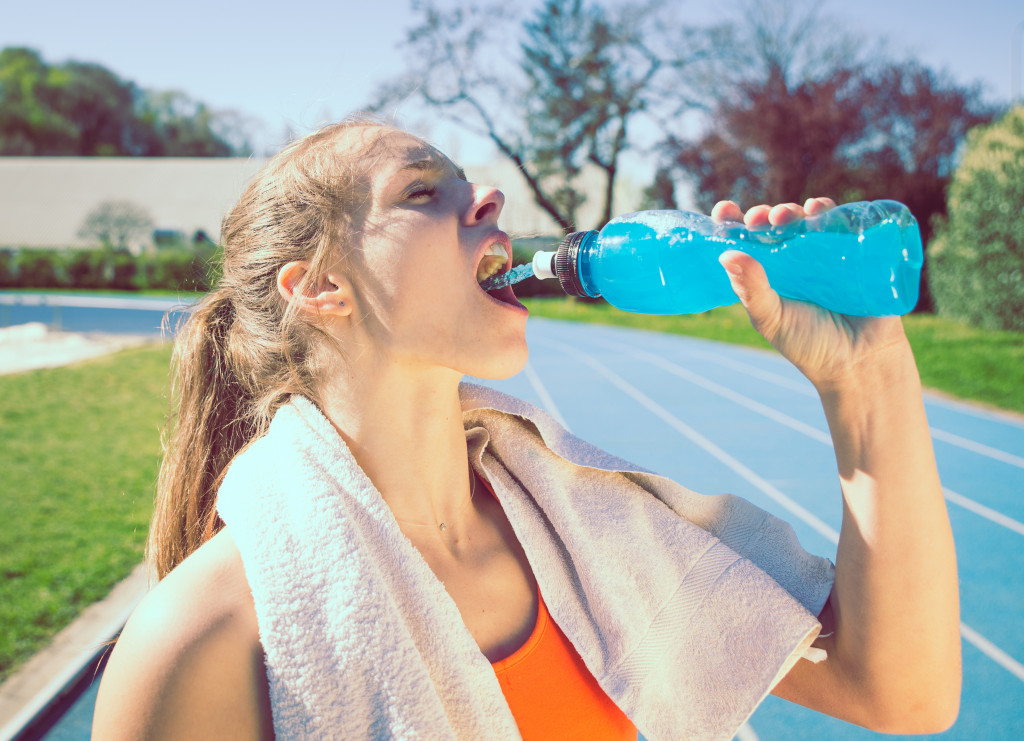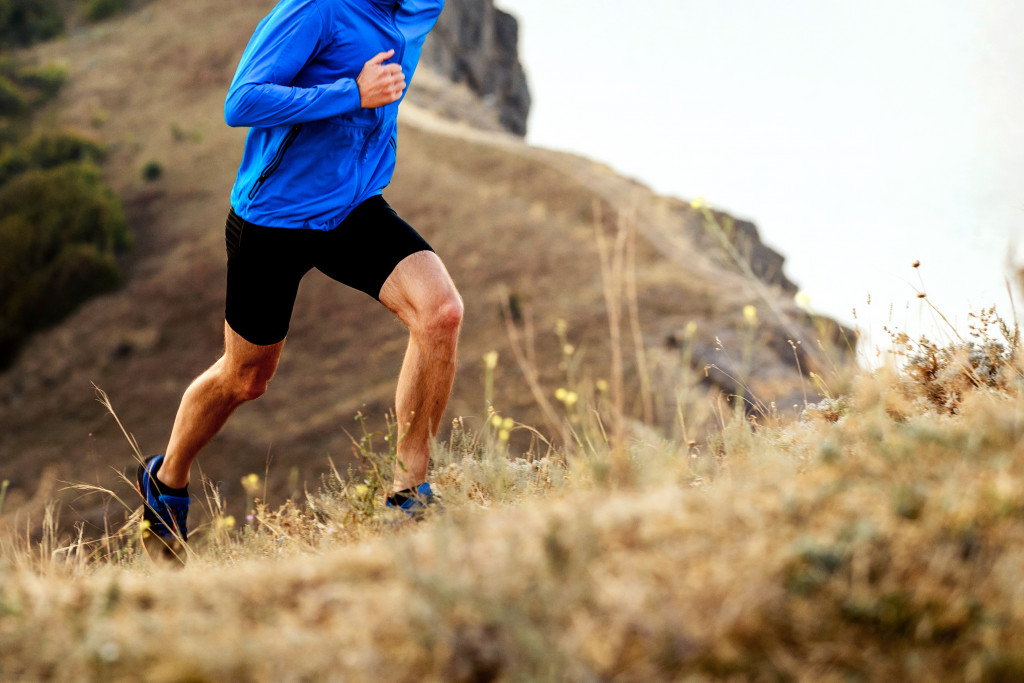One of the most important aspects of any athlete’s regime is nutrition. The success or failure in performance can depend on how well an individual maintains their diet, which means that paying attention to what you eat is crucial for sports and leisure athletes alike.
If you want to win, you need to eat right. If you want to maintain your health, you also need a proper diet. There are many considerations to make when it comes to eating before, during, and after a sporting event or activity.
Maintaining Health and Energy Levels
Eating a well-balanced diet is crucial for athletes to maintain their health and energy levels. The human body is composed of around 60% water, so it’s important to make sure they have enough of this in their system during an event to minimize the risk of dehydration. This can be done by drinking a lot of energy drinks or consuming foods with high water content, such as fruits and vegetables like melons and celery.
Having a balanced diet also means that highly concentrated dairy products such as milk and cheese should be consumed regularly for added health benefits. But beware, the dairy industry is full of misleading marketing tactics to promote unhealthy products for humans. For example, they often advertise “low-fat” or “no fat” versions while still having a lot of sugar in them, which can make you gain weight more easily.
Mapping Out an Athlete’s Diet
An athlete’s diet primarily should consist of:
- five to six meals a day consisting of 55% carbs, 15% proteins, and 25% fats. Keep eating small meals at intervals to refuel your body with the required energy.
- plenty of fresh fruits and vegetables (rich in vitamins, minerals, and antioxidants)
- whole grains like brown rice or quinoa help maintain the body’s muscle mass and keep you full for longer periods
Athletes need not only a well-laid-out plan before an event but also when it comes to eating after it. Maintaining good health with a balanced diet can be difficult when one’s day consists of lots of physical activity throughout the week.
However, planning ahead by packing snacks such as protein bars (high in complex carbohydrates) and dried fruit (rich with vitamins minerals), nuts/seeds before going out should help prevent any unhealthy food choices from occurring during your sporting events or games that lead to weight gain, fatigue, muscle pain, and dehydration.

Pre-Game Meal
You should have a proper meal rich in carbohydrates at least two hours before a sporting event. Carbs are the body’s main energy source but should be consumed in moderation, as they can lead to weight gain. They are also important for maintaining a healthy digestive system that will help with concentration during the event. It is recommended to avoid eating anything too spicy before an event as this could cause stomach cramps or indigestion when doing strenuous exercises such as running or cycling.
If you’re going out running on an empty stomach, then you’ll feel weak after only a few minutes because of how quickly your body’s glycogen stores will be depleted. Great examples of a pre-game meal are toast with peanut butter, a fruit salad, or an omelet. These all provide the body with carbohydrates and protein to give it energy for what’s ahead.
In-Game Meal
Eating during events is important too- when your blood sugar levels are low due to prolonged periods without food, then you should eat a snack to get them back up.
The chosen snacks should be high in carbohydrates, as this will provide your muscles with the energy that they need to keep going and also satisfy any cravings that you might have at the time. It’s important not to consume too many of these, though, because it can lead to stomach cramping or even nausea, adversely affecting your performance.
Eating too much or too little during a sporting activity will both have consequences. For example, if you eat just before playing and your stomach is full, it may feel harder to do well on the field. Whereas if you eat after playing, then your body may take longer to recover, leaving you feeling run down for the next game.
Post-Game Meal
After a sporting event, it’s important to replenish your body with both protein and carbohydrates. Sugary foods are essential for energy levels while also providing carbohydrates in order to replace those used during exercise.
Protein should be consumed post-event, too, so that muscle development can continue without interruption. This will help the muscles recover, repair themselves, and return to their normal state of function.
Whole meat sandwiches, peanuts, whole wheat bread, protein shakes, and chicken are good for this because the protein will build muscle tissue while the carbs provide energy for these processes that need building up again after all the hard work you’ve done.
A post-game meal is crucial for routine players because they usually have more injuries than those who play sporadically. They need food that will help heal muscles instead of getting stored as empty calories from desserts high on sugar content but low on nutritional value.
The Role of Vitamin and Supplements in an Athlete’s Diet
Vitamin supplements can be crucial for athletes because they may not get all the nutrients needed from their diet alone. This is especially true if you’re training hard regularly or are a more extreme sports athletes where there would not always be time for eating healthy food.
Athletes should consult with their doctor before taking any vitamin supplement, however, as these could interfere with certain drugs like antibiotics which might affect your health in other ways, such as by weakening the immune system over time. You should also avoid taking some types of vitamins together at once, as this can also have negative effects.
For example, a combination of vitamin A and beta-carotene has been shown to increase the risk of high Vitamin A levels in the blood. Hence, it’s best not to take these two together unless your doctor advises otherwise.
There are many different types of supplements available on the market, too. These include general ones suitable for all athletes, such as Omega-Three fish oils or Iron tablets, and specific ones designed specifically for certain sports like weightlifting where you need more protein than someone who is running on a regular basis might.
The type should be chosen based on what kind of athlete you are and any extra requirements that may exist due to whatever sport you’re taking part in at the time.
Conclusion
Eating healthy should be a priority for athletes as it is an integral part of staying in shape and recovering from injuries. The best way to eat well is by eating fresh fruit, which provides the vitamins that are absent in saturated fatty foods.
It’s also vital not to over-eat when during sporting events because this will cause problems with performance. A good strategy is to eat light before playing and then eating a proper protein meal after with juices and drinks to restore the water levels in your body.
Athletes also need to drink water regularly in order to keep their bodies hydrated and recover more quickly from injury or physical strain.

